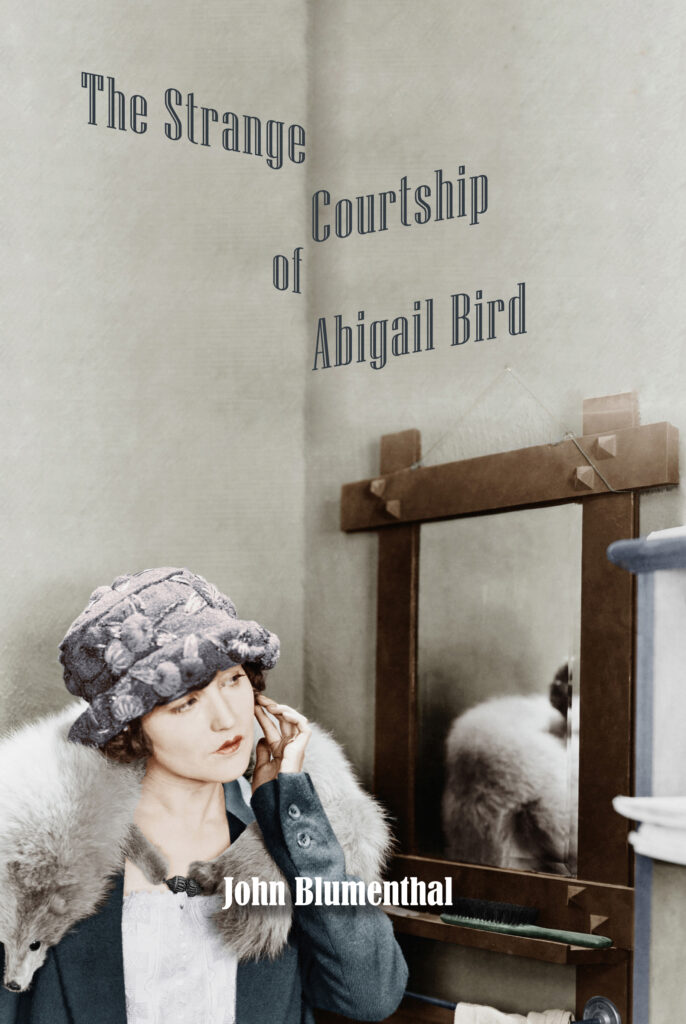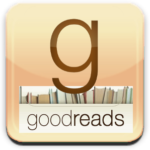Where did my inspiration for “THE STRANGE COURTSHIP OF ABIGAIL BIRD” originate? I’ve been writing novels and screenplays professionally for years and I still don’t really have a clue how that phenomenom works, but in this particular case, I knew two things from the get go—that I wanted to write something about two extremely bookish people who fall in love and that I wanted to start the novel with the words “Call Me Ishmael.” (It was distressing to learn later that some other writer, a guy name Melville, had opened his novel with the exact same sentence.)

But I’m not sure that counted as inspiration. It was really just a vague premise, not nearly enough to start writing. Vague premises pop into my head all the time but most of them never develop into anything beyond that stage. In fact, I abandoned the Abigail idea several times before it finally clicked.
Since I tend to write in the first person, one of the most diffcult tasks for me is finding the voice of the protagonist. I have frequently abandoned novels because the voices I tried just didn’t ring true or because the main character was not sympathetc enough or because I just didn’t like him or her that much. In my opinion, it should be fun to write in a character’s voice; if it’s not, if it’s drudgery, and you find yourself uncertain about his or her motivations or actions, then the voice is probably not right.
In the case of Ishmael Archer, the novel’s main character, finding the right voice was blessedly simple. I knew that he was a man who had been obsessed with novels, primarily the classics, from the age of six. Therefore, it would not be much of a stretch to give him the somewhat archaic speaking style of a character from a 19th Century novel. He would be somewhat haughty, a bit stuffy but his formal language style would be so out of place for the 21st Century that he became something of a fish out of water, not to mention a stickler for grammar.
Once I felt comfortable putting words into Ishmael’s mouth, creating his love interest, Abigail Bird, was relatively simple, as she shared his obsession with literature. Yet I knew that I could not have Abigail simply mimic Ishmael’s style, so I made her a bit less formal and stuffy. For example, she uses contractions and some vernacular phrases; Ishmael never does.
In any case, that’s all I had at first—an opening line and a vague concept. No story, no beginning, no end. The Anna Karenina stuff came much later.
As for the rest of the book, I just winged it. I’ve used outlines for screenplays, because producers generally require them and because I secured most of my deals from pitching stories to studio development execs. My Hollywood writing career began the usual way—by writing spec scripts. But after my first movie came out (“Short Time” — 20th Century Fox), I was suddenly a known quantity and was able to pitch (although I was godawful at it.)
But I don’t use outlines for novels. I seldom have a precise ending in mind when I begin, which can be dangerous if you get to page 300 and have no idea where to go. But for me, the discovery process is enjoyable and I find that if I follow the character’s voice and motivation, and if I throw a few balls in the air, so to speak, I can usually invent a fairly interesting ending, one with a few twists and surprises.
Of course, it’s important to love to write, and I do, Finishing that first draft and typing the words, “The End,” can be a real kick. But then comes the hard part—rewriting, aguably the most important part of the process. By rewriting, I do not mean proofreading. I mean editing out or adding whole chapters, changing and refining characters, locating and changing discrepancies, making the language sing and so on. I often find myself rewriting 20 or 30 times and even then I am seldom completely satisfied but I know that eventually I will have to stop.
It’s the next part that I despise the most—handing the manuscript in to my agent, waiting for her to read it, doing more rewrites, going nuts as the she sends it around to editors, trying not to bug her with nagging phone calls. Yes, you will be joyful if the novel sells, but in my experience that euphoria is short-lived because the next chore is particpating in the marketing (readings, utilizing social networks and so forth), knowing full well, that if this book does not do well, it will become much more difficult to sell your next one.

Fascinating. Thanks for sharing, John. I loved the book.